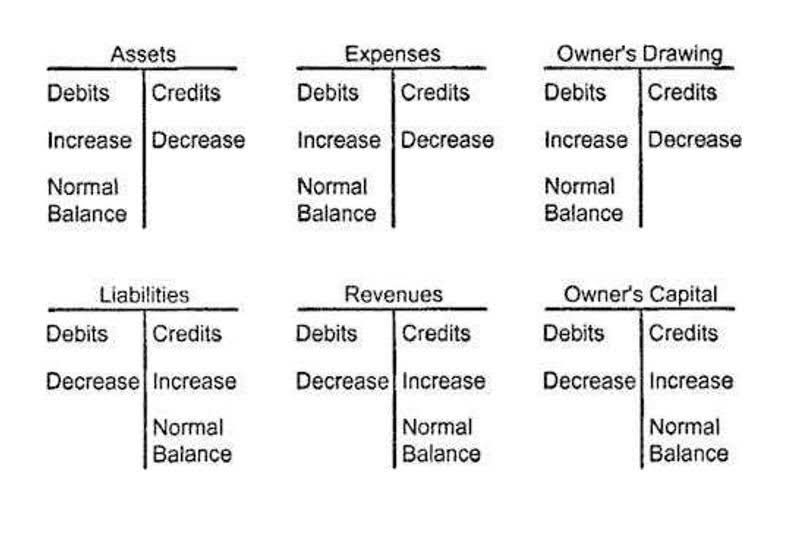
Key Differences Between External Audit vs Internal Audit

Small businesses often think that audits are only for large corporations, but this is a misconception. Internal audits, especially when coupled with accounting services for small business, can provide valuable insights into cash flow management, operational efficiency, and risk assessment. These audits can help small business owners make informed decisions, prevent fraud, and ensure they are compliant with tax laws and other regulations.
Common Business Risk Assessment Pitfalls
In addition to thorough documentation, effective internal control what are retained earnings systems play a crucial role in simplifying the audit process. Strong internal control systems reduce the risk of errors and fraud, making the audit process more efficient. These systems include policies and procedures that ensure the accuracy and integrity of financial information. By having robust internal controls in place, organizations can demonstrate to auditors that they have taken proactive measures to safeguard their assets and prevent financial misstatements. The cost of hiring external auditors can be substantial, especially for smaller organizations with limited financial resources.
Objectives of Internal Audits

Internal auditors examine various aspects of the organization, from financial transactions to operational processes, identifying risks and offering solutions for improvement. External audits are performed by a third-party auditor who has no ties to the organization and no stake in the outcome of the audit. Qualification requirements for external auditors vary, but they must be certified accountants with qualifications and professional accreditations. With these systems in place, you can focus on the results of audits rather than the process. Here is a closer look at what you can internal vs external audit expect from internal and external audits and the advantages and drawbacks of each. The main report is in a format required by the Auditing Standards andfocuses on whether the financials give a true and fair view and comply withlegal requirements.
Difference Between Internal and External Auditing: A Comprehensive Guide

External audits primarily assess compliance with ISO standards and verify conformity against external benchmarks. The auditor reports and documents their findings, highlighting non-conformities and providing suggestions for improvement. This helps the organization identify areas that require corrective actions and enhances its overall performance. Before conducting an on-site external audit, the auditor establishes contact with the organization to schedule the audit and requests relevant documentation, such as quality manuals, procedures, and records. They also review the applicable ISO standards to familiarize themselves with the requirements.
Q4 What is the main purpose of external auditing?

Internal auditing refers to the independent assessment of an organization’s internal control systems and financial records by its own employees. This type of audit is conducted by internal auditors who play a vital role in evaluating risks, identifying weaknesses, and improving organizational processes. On the other hand, an external audit is performed by an independent third-party auditor, usually a firm, to evaluate the fairness and accuracy of an organization’s financial statements. External audits ensure that financial reports comply with accounting standards and provide an objective opinion about the company’s financial health.
- The software can analyze large volumes of data, allowing auditors to focus on critical areas and provide valuable insights to management.
- By logging all tasks worked on by preparers and approvers, this feature is essential for audit purposes.
- With advancements in technology, internal auditors are increasingly utilizing data analytics and automation tools to enhance their effectiveness.
- The Highradius’ Record to Report suite streamlines the entire financial reporting process, ensuring all records are accurate and up-to-date.
- They conduct comprehensive assessments of the organization's activities, identifying areas of potential vulnerability and proposing proactive measures to mitigate risks effectively.
- A private business may hire and schedule an operational audit with a third party to learn ways to become more efficient.
They conduct comprehensive assessments of the organization's activities, identifying areas of potential vulnerability and proposing proactive measures to mitigate risks effectively. When auditors identify significant deficiencies in internal control, they must communicate these in internal audit reports to those charged with governance and management. Internal audits play a supportive role in preparing organizations for external audits. They help identify areas that require improvement, allowing organizations to maintain certification over time. These Record Keeping for Small Business records need to be independently audited to ensure they provide a full and accurate picture of a company’s financials.
Audit & Assurance Services
- Here is a closer look at what you can expect from internal and external audits and the advantages and drawbacks of each.
- Publicly held organizations will also be reviewed three times by an external auditor.
- Knowing that processes and procedures will be analyzed at some point can keep employees on the right path and discourage shortcuts or unethical behavior that might be detrimental to the company.
- By comprehending their unique features, organizations can leverage the benefits of each approach to enhance their financial integrity, operational effectiveness, and stakeholder confidence.
- The timing of external audits is critical for meeting regulatory deadlines and ensuring timely reporting of financial information to investors and regulators.
- External audit findings and opinions are directly communicated to shareholders through an audit report accompanying the financial statements.
To evaluate a company's financial records and issue an audit opinion of the company to the relevant parties. Auditing roles usually fall into two camps though, internal and external, and it’s important to understand these implicitly before looking too closely at specialisms or niches. The board of directors often delegates the hiring responsibility to the audit committee.




